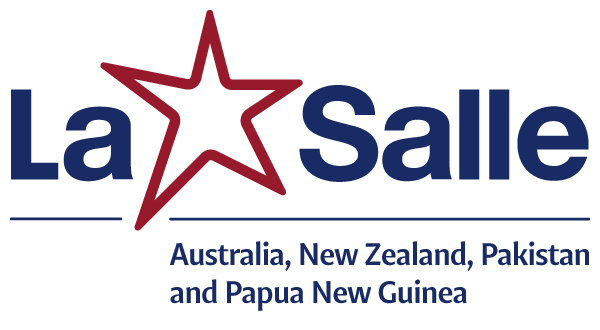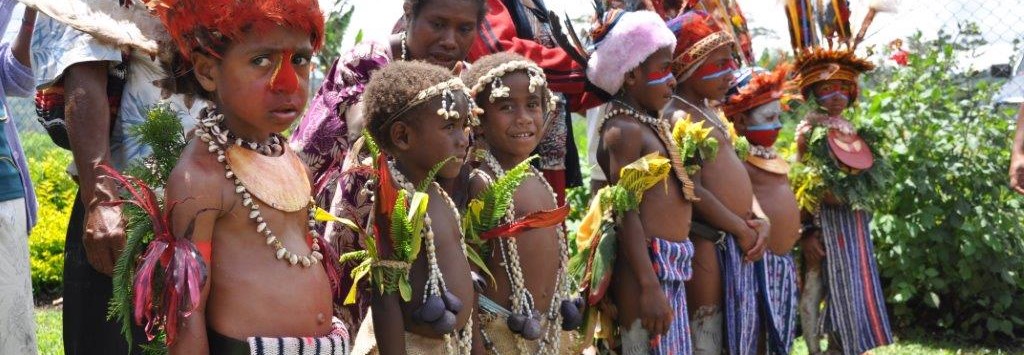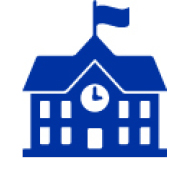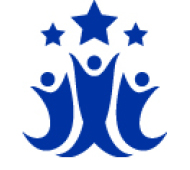Lasallian presence in Papua New Guinea Education
"Their approach to students is gentle and their commitment to teaching is exemplary".
Education had expanded greatly as Christian missionaries came to Papua and New Guinea in 19th century. The De La Salle Mission in Papua New Guinea began briefly in 1914 when three Germans ran a school in New Britain. Australian Brothers came in 1946, at the request of Bishop de Boismenu, and were soon running a teachers' college for catechists on Yule Island, and later a secondary boarding school in Bereina.
Today, many city students live in poor settlement communities which have no access to basic amenities such as electricity and running water. Youth come from broken families and difficult circumstances. In remote provinces, there are often primary schools only, to which students might walk long distances from their villages. Catholic education comprises about 27% of the total national education system.
Currently, Brothers and Lay Partners conduct De La Salle College Bomana (from 1964), educating 1200 boys. De La Salle Technical College Hohola, founded in 1993, caters for 720 female and male students, unable to progress past Grade 9. They are often from struggling settlement families. Jubilee Catholic Secondary School, founded in 2000, one of the top academic schools in the nation, is a vibrant Lasallian school of 1200 co-educated students. All are in Port Moresby. In these three Christian schools, the Lasallian call to prayer is universal. Lasallian youth ministers and student leaders work with their peers to instil a sense of community, and an outreach service in the local community. Teachers are encouraged to take on the five Lasallian principles of education, including a strong pastoral relationship of teacher-to-student. Over the years, up to 8 Filipino Brothers, several Indian Brothers and 3 Pakistani Brothers have given service, as well as many Australians. There are 3 Papua New Guinean Brothers.
Lasallian impact on teacher training continues at Mt. Hagen and Moresby Teachers Colleges, promoting a Lasallian spirit. At Holy Trinity Teachers College in Mt. Hagen of 300 students, there is an active group of Lasallians as lecturers, with the Principal a strong advocate. They recently established a Catholic Students Association on campus, and there is a Young Lasallian Ministry established now. The induction program for new teachers includes Lasallian pedagogy, and the Lasallian prayer starts and ends all classes. Every month Lasallians from the province primary schools meet. There is a Brothers Community on campus.
At Sacred Heart Teachers' College, there are a good number of lecturers who have had Lasallian formation and inductions. There, a community of lay Lasallians and a Brother continue to teach, pray and witness within the campus, which has three other religious order traditions as well. There is an annual Lasallian Induction that takes place every year around August and September. The 3rd final-year students are invited to follow a program of 7-10 sessions that inducts them into the "Lasallian Family".
From these Colleges and schools, the Lasallian spirit and practice has had a phenomenal growth through the "Family" over the last two decades. The National Co-ordinator animates approximately 400 educators across the country, who are members. They teach in all sectors of education in the country - elementary, primary and secondary schools, and include tertiary lecturers, as well as some education department officers. A large number teach solo or in small numbers in remote establishments, appreciating their 'association'. They are spread over 17 of the 21 provinces, in approximately 82 schools and 3 tertiary or teacher training colleges. Each province has an area co-ordinator.
Daily, "Let us remember we are in the holy presence of God" is called out in innumerable classrooms around the nation.
Some Area Co-ordinators have seminars, or establish a Lasallian Youth group. There may be pastoral projects in the school. One instance has been a 3-day teachers retreat for a region. As the current National Co-ordinator says:
You can identify the charism by observing how these teachers live their lives in their homes, communities and at school. Their approach to students is gentle and their commitment to teaching is exemplary. The Lasallian expressions and ways of prayers are part of their everyday language. They lead organized activities in their schools; they are vocal on issues that affect the quality of teaching and learningA good number of these Lasallians are recognised as leaders in their schools, and those who are Catholics, are active members in their parishes and in their dioceses.
The District Lasallian Mission Council in Australia, through its Services personnel, offers formation support to lead teachers and youth ministers. It establishes M.O.U's with institutions, and creates twinning partners with ANZ schools to help funding and inter-national volunteering.





